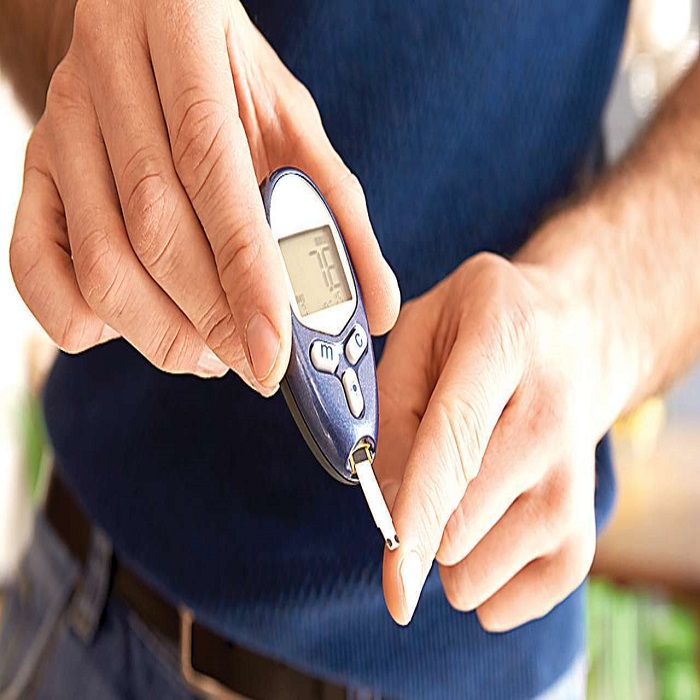Diabetic patients should take care to control their condition by adherence to dietary and exercise guidelines as well as any prescription medications. It will lessen the toll the illness takes on your body.
However, if your diabetes isn’t well controlled, your blood sugar could climb to potentially fatal levels. Strange bodily odors, especially on the breath, can be a sign of high blood sugar.
It is critical to recognize these symptoms and get prompt medical attention. It’s important to keep an eye on your blood sugar levels since untreated diabetes can lead to serious complications including amputations and strokes.
How does diabetes cause body odor?
One of the dangerous consequences of diabetes is ketoacidosis. When the body doesn’t produce enough insulin, blood sugar can’t enter cells to be used as fuel, leading to this complication of diabetes. The breakdown of fat in the liver results in the production of ketones, which are acids used for fuel. Ketones in the blood and urine can reach potentially lethal concentrations if they are produced at too high a rate. This process takes place within the liver and results in an acidic blood state.
There are three primary breath odors that might result from this illness. This indicates toxicity. These odors emerge as ketones exit the body via breath and sweat.

Recognizing odors caused by diabetes
Ketones in the blood can cause a variety of unpleasant odors, including:
- fruity breath odor
- Breath that smells like feces. This may be the result of chronic vomiting or a bowel obstruction.
- Breath with an ammonia-like odor, which is common in persons with chronic kidney failure.
It’s crucial to keep an eye out for these symptoms, which might seem insignificant compared to a blood sugar test but could actually reveal a lot about the severity of the disease. These symptoms can help you identify the disease and seek quick medical attention, even if it is in its early stages.

How frequent is this condition?
Ketoacidosis can develop in people with type 1 diabetes for a number of reasons, including infection, injury, major illness, the stress of surgery, and failure to take necessary insulin injections.
People with type 2 diabetes are less likely to develop and suffer from ketoacidosis. But unchecked blood sugar for a long time can cause it.
Non-diabetic people are not immune to developing ketoacidosis. In the absence of glucose, the body will resort to ketogenesis for energy production, and this is a common symptom of starvation. This disorder has been linked to low-carbohydrate diets in rare cases, according to the literature.
Use a urine ketone test kit or a blood ketone meter to detect ketones if your blood sugar is 240 mg/dL or above. This should be performed every 4 to 6 hours. If you have any signs of diabetic ketoacidosis, you should also test for ketones.
Additional Ketoacidosis Symptoms
The smell of one’s breath isn’t the only symptom of this illness.
- Fatigue
- Excessive urination
- Weight loss
- Nausea
- Vomiting
- Abdominal pain

How to Avoid Diabetes Ketoacidosis
It’s important for diabetics to keep tabs on their blood sugar levels so they can take preventative measures as needed. You should take your insulin exactly as suggested by your doctor and return for a recheck if you have any adverse reactions. Keep your blood sugar levels within the normal range by following a healthy, active, and well-balanced lifestyle.

Suggestions for diabetics’ diets
Calories, saturated fat, trans fat, sugar, and salt intake should all be moderate in your daily diet. Fiber-rich meals, such as whole grain cereals, breads, crackers, rice, and pasta, should be consumed more frequently. Consuming water instead of sugary sodas and bottled juices. Fruits and vegetables, such as oranges, lemons, cucumbers, and strawberries, can be used to add flavor. Eat plenty of fruits and veggies. If you want to learn how to make your diet more diabetes-friendly, talk to your doctor or a nutritionist.

Fitness advice for people with diabetes
Maintain a regular schedule of physical activity. If you’re not used to working out, start with a 10-minute walk three times a day. If getting out for a walk is tough, you could walk around the house for a set amount of time.
Do not neglect strength training alongside your regular walking routine. You can accomplish this with less strenuous activities, like yoga, or with more intense ones, like push-ups.
Create a daily step goal and do your best to meet it. For optimal outcomes, maintain a balanced diet on a daily basis.

Additional diabetic complications
Several problems might develop from poorly managed diabetes and high blood sugar over time. It raises the risk of a number of heart problems, including heart attack and stroke. It can also harm the nerves, kidneys, eyes, feet, and skin. Diabetes type 2 may also raise the risk of dementia and depression.


